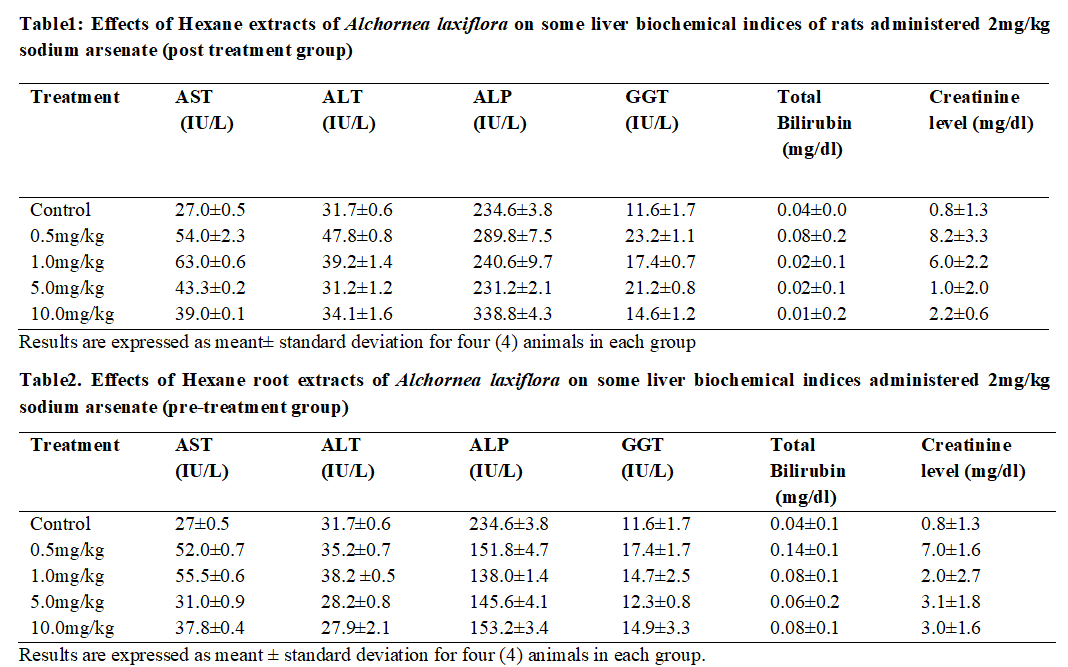Antioxidant Actions of Freshly Commuted Hexane Extracts of Alchornea Laxiflora Root on Sodium- Arsenate Induced Oxidative Stress in Male Wistar Rats
Authors
Abstract
The antioxidant activities of hexane extract of freshly commuted roots (HR) of Alchornea laxiflora on liver damage were examined using in vivo sodium arsenate-induced oxidative damage model in male Wistar rats weighing between 150 and 200 g. The animals were grouped into two groups of four animals, group 1 animals were given 1ml of sodium-arsenate (2mg/kg) for 2 days and then treated with graded dosage (0.5, 1.0, 5.0 and 10.0 mg/kg body weight) HR of Alchornea laxiflora for 10days, while group 2 animals were given the same graded dosage HR extract of Alchornea laxiflora for 10 days but in addition, received 1 ml of sodium-arsenate (2mg/kg) from 6th-10th day. At expiration of dosing period, the animals were sacrificed and their blood and organs harvested for estimation of AST, ALT, GGT, Total Bilirubin and Creatinine levels. Pre-treatment with HR extract of Alchornea laxiflora prior to intra-peritoneal administration of 2mg/kg body weight of sodium arsenate reduced significantly (P<0.05), the levels of AST, ALT, GGT, Total Bilirubin and Creatinine level in the serum and liver, showing the hepatoprotective and anti-oxidative capacity of Alchornea laxiflora. Furthermore, the extract evaluated by its capacity of quenching free radicals induced by the sodium arsenate, showed remarkable scavenging effects on the thyl and singlet oxygen free radicals, at concentrations of 5.0 and 10.0mg/kg. These findings suggest the tendencies of HR extract of Alchornea laxiflora to elicit protective actions in sodium arsenate-induced liver damage in rats hence, a protective role against pro-oxidant induced membrane damage.




